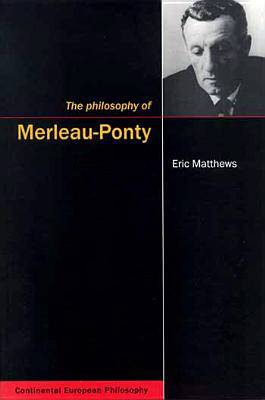
- Afhalen na 1 uur in een winkel met voorraad
- Gratis thuislevering in België vanaf € 30
- Ruim aanbod met 7 miljoen producten
- Afhalen na 1 uur in een winkel met voorraad
- Gratis thuislevering in België vanaf € 30
- Ruim aanbod met 7 miljoen producten
Zoeken
Omschrijving
In this clear and comprehensive account of Merleau-Ponty's thought Eric Matthews shows how Merleau-Ponty has contributed to current debates in philosophy, such as the nature of consciousness, the relation between biology and personality, the historical understanding of human thought and society, and many others. Surveying the whole range of Merleau-Ponty's thinking, Matthews examines his views about the nature of phenomenology and the primacy of perception; his account of human embodiment, being-in-the-world, and the understanding of human behaviour; his conception of the self and its relation to other selves; and his views on society, politics, and the arts. A final chapter considers his later thought, published posthumously. The ideas of Merleau-Ponty are of immensely important to the development of modern French philosophy. Matthews evaluates his distinctive contributions and relates his thought to that of his predecessors, contemporaries, and successors, both in France and elsewhere. This unrivalled introduction will be welcomed by analytic philosophers and cognitive scientists as well as all students taking courses in contemporary continental philosophy.
Specificaties
Betrokkenen
- Auteur(s):
- Uitgeverij:
Inhoud
- Aantal bladzijden:
- 256
- Taal:
- Engels
- Reeks:
Eigenschappen
- Productcode (EAN):
- 9780773523845
- Verschijningsdatum:
- 20/03/2002
- Uitvoering:
- Paperback
- Formaat:
- Trade paperback (VS)
- Afmetingen:
- 157 mm x 233 mm
- Gewicht:
- 308 g

Alleen bij Standaard Boekhandel
+ 85 punten op je klantenkaart van Standaard Boekhandel
Beoordelingen
We publiceren alleen reviews die voldoen aan de voorwaarden voor reviews. Bekijk onze voorwaarden voor reviews.







